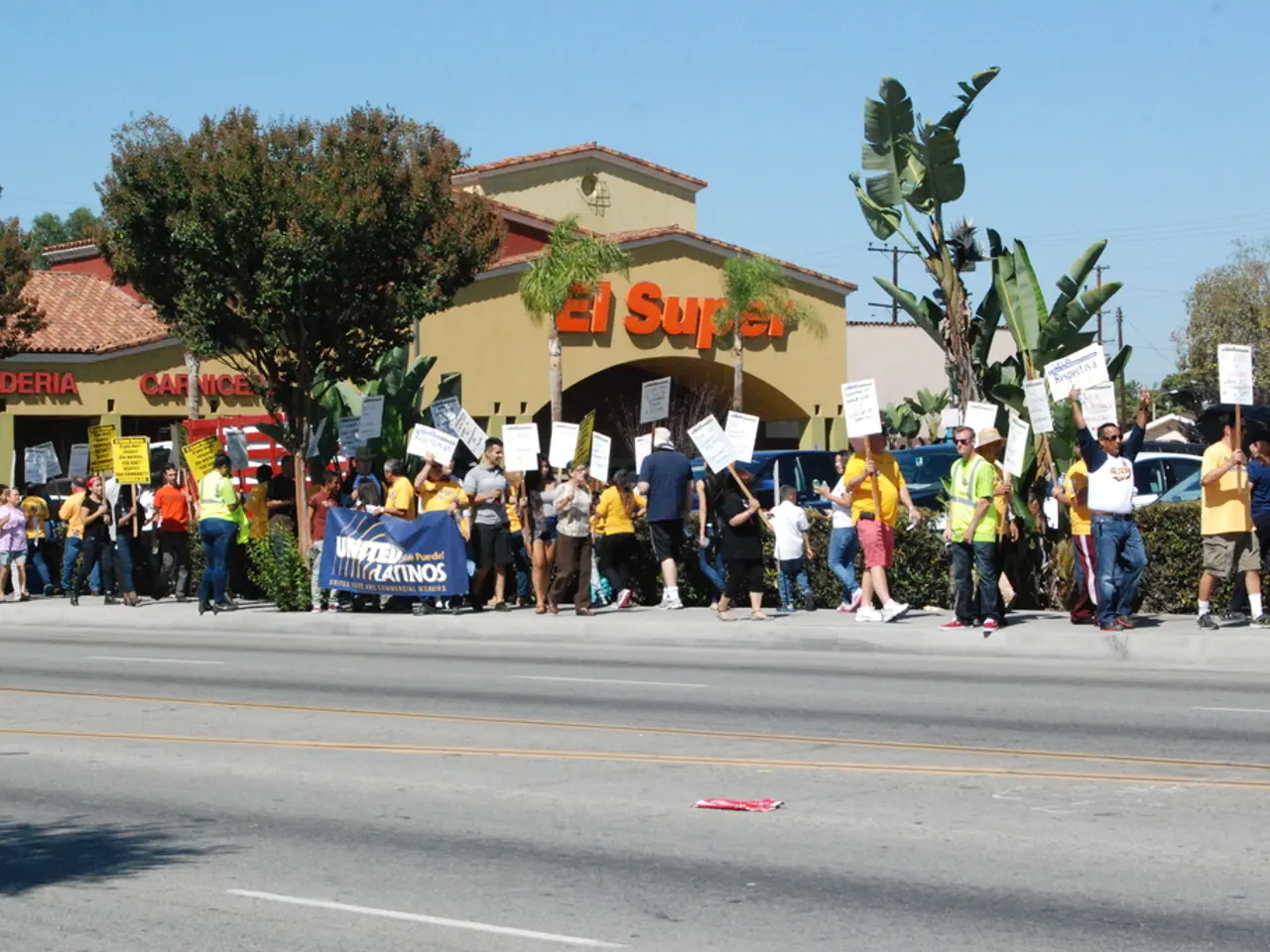Important Predictive Analytics Models for Political Campaign Strategy
In the dynamic world of politics, the power of data analysis and predictive modeling is becoming increasingly significant. Campaign strategists are leveraging advanced techniques to gain valuable insights and make informed decisions.
Key skills required to build predictive models for politics include data analysis, statistics, programming in languages like Python or R, machine learning, and political domain knowledge. The top predictive analytics models commonly used by political campaigns for voter targeting, fundraising, and optimizing campaign outcomes include classification, clustering, regression analysis, and machine learning models.
Classification models are particularly useful, categorizing voters based on their likelihood to vote, support a candidate, or donate. Clustering models group voters or donors into segments with similar characteristics, enabling targeted outreach and efficient resource allocation. Regression analysis helps predict continuous outcomes such as the expected donation amount from a supporter or likelihood of turnout based on demographic and past behavior data. Machine learning models, including neural networks, capture complex patterns in large datasets, producing predictive scores indicating voter turnout probability or donor potential.
Campaigns implement these models primarily through advanced voter databases and AI-driven tools that integrate and cleanse diverse datasets and output actionable insights. For example, predictive scores based on these models guide targeting decisions, helping campaigns focus on persuadable voters or high-potential donors, thereby improving engagement and fundraising effectiveness.
Software platforms enabling these predictive analytics for political campaigns include tools like NGP VAN Enterprise, Bonterra EveryAction, ActBlue, Salsa Engage, and CiviCRM. These platforms support large-scale voter file management, segmentation, and real-time data sharing across teams, crucial for running national campaigns. ActBlue specializes in online fundraising analytics, while Salsa Engage and CiviCRM offer capabilities for supporter segmentation and tracking engagement over time for grassroots or issue-based outreach.
Predictive analytics provides valuable insights for political campaign strategists, including predicting voter turnout, forecasting election results, understanding voters' concerns, and identifying which voters are most likely to vote in an election. Real-time data keeps models updated with the latest voter sentiment, engagement, and event outcomes, improving forecasting accuracy.
Ethical considerations in political predictive modeling include ensuring data privacy, avoiding discriminatory targeting, and using models transparently to maintain voter trust. Future trends in predictive political analytics include greater use of AI, real-time sentiment analysis, integration with big data sources, and automated campaign decision-making tools.
Predictive analytics minimizes wasted spending by focusing resources on high-impact voters and avoiding ineffective outreach. By understanding and anticipating voter behavior, political campaigns can optimize resource allocation, improve engagement, and drive successful campaigns.
For those interested in harnessing the power of data science for their political campaigns, Political Campaign Consulting services are available. To get in touch, one can fill out an online form on the site or call 91 9848321284. Predictive analytics in political campaigns helps in forecasting voter behavior, election outcomes, and campaign performance, giving a significant advantage in today's competitive political landscape.
- Consulting services are available for those interested in leveraging data science for voter targeting and optimizing campaign outcomes, such as predicting voter behavior, election outcomes, and campaign performance.
- In politics, data analytics and predictive modeling services are increasingly significant, as campaign strategists integrate AI-driven tools to extract actionable insights from vast datasets.
- Advanced analytics models, like classification, clustering, regression analysis, and machine learning, are used by political campaigns to group voters or donors based on similar characteristics, predict continuous outcomes, and capture complex patterns.
- Software platforms like NGP VAN Enterprise, Bonterra EveryAction, ActBlue, Salsa Engage, and CiviCRM enable large-scale voter file management, segmentation, and real-time data sharing, vital for running national campaigns.
- Ethical considerations in political predictive modeling include the prioritization of data privacy, avoiding discriminatory targeting, and maintaining transparency to build trust among voters and ensure policies are aligned with legislation.








